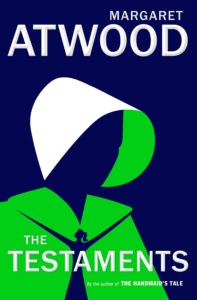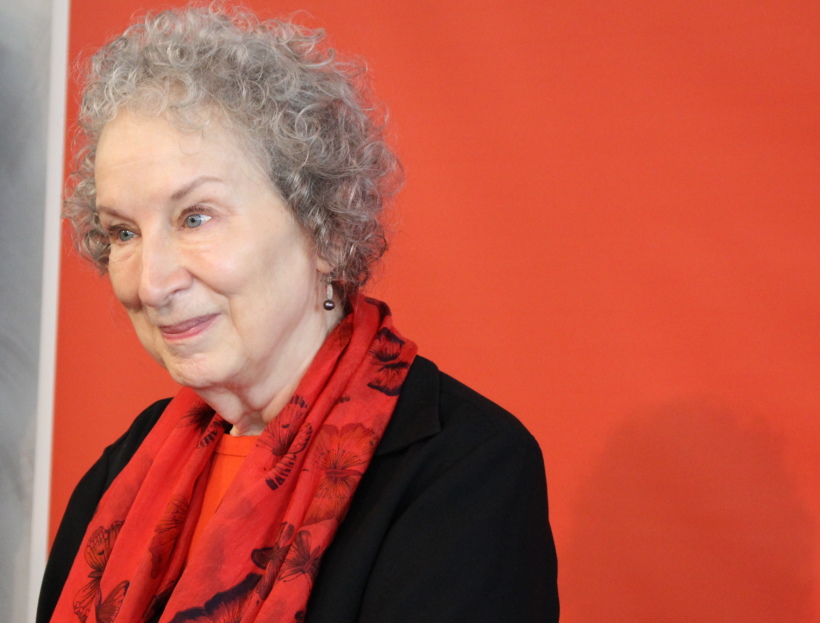News
‘Handmaid’s Tale’ Sequel by Margaret Atwood WF ’61
It has been 34 years since readers were introduced to the dystopian world of The Handmaid’s Tale, but the stories, characters, and themes of the novel feel more relevant than ever.
Margaret Atwood WF ‘61, recently told the New York Times she hadn’t been sure she had more of that story in her. Then, after revisiting clippings and re-reading the first novel, Ms. Atwood began crafting a sequel that releases today.

The Testaments (Nan A. Talese) picks up 15 years after The Handmaid’s Tale and introduces two new narrators to the theocratic world. Both stories are set in Gilead, an extremist regime that has overthrown the United States where fertile women are forced to carry the children of the ruling class. The Testaments weaves together the experiences of three women: a young woman raised in Gilead, another who escaped the regime as a child, and a powerful leader of the government.
The novel, prior to publication, has already been shortlisted for the Booker Prize and the Scotiabank Giller Prize.“A rare treat,” said Slate, “a corker of a plot, culminating in a breathless flight to freedom.”
Thanks in part to current events and the Hulu TV adaptation, The Handmaid’s Tale has become a cultural phenomenon. Atwood has worked with the showrunner of the popular show to make sure the world created within the show is true to that of the novels.
When constructing the sequel, Atwood told the Times she focused on exploring one question: “Totalitarian systems don’t last, it is my fervent belief. Some of them have lasted longer than others. When they come apart, what is it that causes them to fall apart?”
According to the Times review, Atwood “decided that she would include nothing in the novel ‘that had not already happened’ somewhere, sometime in history, or any technology ‘not already available,’” when creating Gilead. Atwood also called on her study of Victorian literature—undertaken during her graduate study at Harvard as a Woodrow Wilson Fellow—when crafting the narratives of The Testaments.
Unlike The Handmaid’s Tale, Atwood tells the Times that The Testaments offers more closure. “The very act of writing or recording one’s experiences, Atwood argues, is “an act of hope.”’


